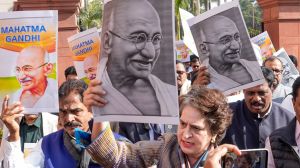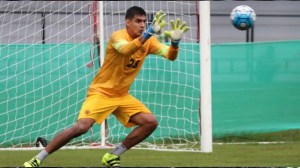In a landmark judgment, SC rules benchmark disability is no bar for edu admissions
The top court further said the disability board should also give reasons if it concludes that the candidate was not eligible for pursuing the course.
 The verdict was pronounced on a plea of student Omkar who has challenged the Graduate Medical Education Regulation of 1997 which bars a person with equal or more than 40 percent disability from pursuing MBBS (express image/ representative)
The verdict was pronounced on a plea of student Omkar who has challenged the Graduate Medical Education Regulation of 1997 which bars a person with equal or more than 40 percent disability from pursuing MBBS (express image/ representative)THE SUPREME Court on Tuesday ruled that only the existence of the benchmark permanent disability of 40 per cent does not bar a candidate from being considered for admission to an educational institution unless a medical assessment board is of the opinion that the disability will come in the way of pursuing the course.
Confirming the admission of a candidate with 45 per cent permanent disability for the MBBS course, a bench of Justices B R Gavai, Aravind Kumar and K V Viswanathan said, “We hold that quantified disability per se will not disentitle a candidate with benchmark disability from being considered for admission to educational institutions. The candidate will be eligible if the Disability Assessment Board opines that notwithstanding the quantified disability the candidate can pursue the course in question.”
Writing for the bench, Justice Viswanathan said: “The Disability Assessment Boards assessing the candidates should positively record whether the disability of the candidate will or will not come in the way of the candidate pursuing the course in question. The Disability Assessment Board should state reasons in the event of the Disability Assessment Board concluding that the candidate is not eligible for pursuing the course.”
Referring to the Rights of Persons with Disabilities (RPwD) Act, 2016, the bench underlined the need to follow the principle of reasonable accommodation as laid down in Section 2(y) of the Act. The section defines “reasonable accommodation” as necessary and appropriate modification and adjustments, without imposing a disproportionate or undue burden in a particular case, to ensure to persons with disabilities the enjoyment or exercise of rights equally with others.
The court said this “should not be understood narrowly to mean only the provision of assisting devices and other tangible substances which will aid persons with disabilities”.
“If the mandate of the law is to ensure a full and effective participation of persons with disabilities in society and if the whole idea was to exclude conditions that prevent their full and effective participation as equal members of society, a broad interpretation of the concept of reasonable accommodation which will further the objective of the RPwD Act and Article 41 of the Directive Principles of State Policy is mandated,” it said.
The judgment said the approach of the government, regulatory bodies and even private sector should be “as to how best can one accommodate and grant the opportunity to the candidates with disability”.
“The approach should not be as to how best to disqualify the candidates and make it difficult for them to pursue and realise their educational goals,” it said.
Recollecting the achievements of acclaimed classical dancer Sudha Chandran and Arunima Sinha, who conquered Mount Everest, among others, the ruling described them as “some of the shining daughters and sons from a long and illustrious list of individuals in India who scaled extraordinary heights braving all adversities”.
- 01
- 02
- 03
- 04
- 05






























